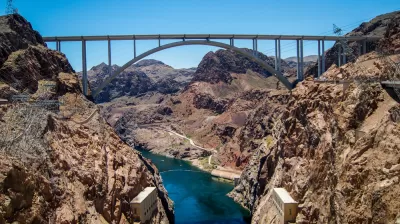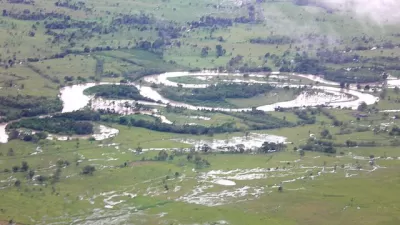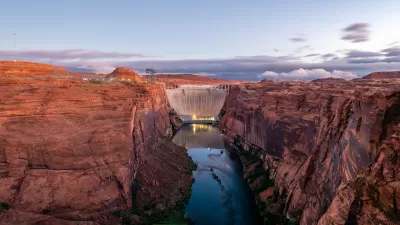Corporations have rights in the United States, and an organization called Deep Green Resistance is going to federal court in Colorado to argue that rivers should too.

The movement to give rivers the rights of humans has arrived in the United States—the movement has already found success in countries as diverse as Colombia, India, and New Zealand.
Julie Turkewitz reports: "a Denver lawyer and a far-left environmental group are asking a judge to recognize the Colorado River as a person." Turkewitz explains the potential consequence of the lawsuit:
If successful, it could upend environmental law, possibly allowing the redwood forests, the Rocky Mountains or the deserts of Nevada to sue individuals, corporations and governments over resource pollution or depletion. Future lawsuits in its mold might seek to block pipelines, golf courses or housing developments and force everyone from agriculture executives to mayors to rethink how they treat the environment.
A Federal District Court in Denver will consider the lawsuit, which some legal experts say has a slim chance, despite the precedent set in other countries. The article includes insight into the political context of environmentalism in Colorado and other states in the Colorado River watershed, as well as some soundbites that preview the response of regional politicians.
FULL STORY: Corporations Have Rights. Why Shouldn’t Rivers?

Trump Administration Could Effectively End Housing Voucher Program
Federal officials are eyeing major cuts to the Section 8 program that helps millions of low-income households pay rent.

Planetizen Federal Action Tracker
A weekly monitor of how Trump’s orders and actions are impacting planners and planning in America.

Ken Jennings Launches Transit Web Series
The Jeopardy champ wants you to ride public transit.

Washington Legislature Passes Rent Increase Cap
A bill that caps rent increases at 7 percent plus inflation is headed to the governor’s desk.

From Planning to Action: How LA County Is Rethinking Climate Resilience
Chief Sustainability Officer Rita Kampalath outlines the County’s shift from planning to implementation in its climate resilience efforts, emphasizing cross-departmental coordination, updated recovery strategies, and the need for flexible funding.

New Mexico Aging Department Commits to Helping Seniors Age ‘In Place’ and ‘Autonomously’ in New Draft Plan
As New Mexico’s population of seniors continues to grow, the state’s aging department is proposing expanded initiatives to help seniors maintain their autonomy while also supporting family caregivers.
Urban Design for Planners 1: Software Tools
This six-course series explores essential urban design concepts using open source software and equips planners with the tools they need to participate fully in the urban design process.
Planning for Universal Design
Learn the tools for implementing Universal Design in planning regulations.
Heyer Gruel & Associates PA
Ada County Highway District
Institute for Housing and Urban Development Studies (IHS)
City of Grandview
Harvard GSD Executive Education
Toledo-Lucas County Plan Commissions
Salt Lake City
NYU Wagner Graduate School of Public Service





























